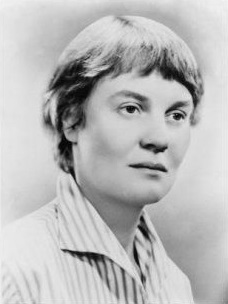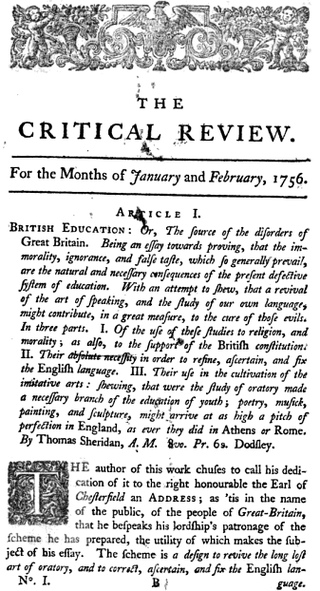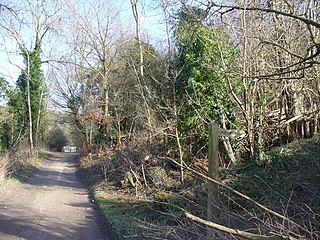
Gerolamo Cardano was an Italian polymath whose interests and proficiencies ranged through those of mathematician, physician, biologist, physicist, chemist, astrologer, astronomer, philosopher, writer, and gambler. He became one of the most influential mathematicians of the Renaissance and one of the key figures in the foundation of probability; he introduced the binomial coefficients and the binomial theorem in the Western world. He wrote more than 200 works on science.

David Herbert Lawrence was an English novelist, short story writer, poet and essayist. His modernist works reflect on modernity, social alienation and industrialization, while championing sexuality, vitality and instinct. Several of his novels, Sons and Lovers, The Rainbow, Women in Love, and Lady Chatterley's Lover, were the subject of censorship trials for their radical portrayals of sexuality and use of explicit language.

Dame Jean Iris Murdoch was an Irish and British novelist and philosopher. Murdoch is best known for her novels about good and evil, sexual relationships, morality, and the power of the unconscious. Her first published novel, Under the Net (1954), was selected in 1998 as one of Modern Library's 100 best English-language novels of the 20th century. Her 1978 novel The Sea, The Sea won the Booker Prize. In 1987, she was made a Dame by Queen Elizabeth II for services to literature. In 2008, The Times ranked Murdoch twelfth on a list of "The 50 greatest British writers since 1945".

Edward Morgan Forster was an English author, best known for his novels, particularly A Room with a View (1908), Howards End (1910) and A Passage to India (1924).
This article contains information about the literary events and publications of 1977.
This article is a summary of literary events and publications during 1764.

The Hogarth Press is a book publishing imprint of Penguin Random House that was founded as an independent company in 1917 by British authors Leonard Woolf and Virginia Woolf. It was named after their house in Richmond, in which they began hand-printing books as a hobby during the interwar period.

Maurice is a novel by E. M. Forster. A tale of homosexual love in early 20th-century England, it follows Maurice Hall from his schooldays through university and beyond. It was written in 1913–1914 and revised in 1932 as well as 1952–1960. Forster was an admirer of the poet, philosopher, socialist, and early gay rights activist Edward Carpenter and, following a visit to Carpenter's home at Millthorpe, Derbyshire in 1913, was inspired to write Maurice. The cross-class relationship between Carpenter and his working-class partner, George Merrill, presented a real-life model for that of Maurice and Alec Scudder.

John Middleton Murry was an English writer. He was a prolific author, producing more than 60 books and thousands of essays and reviews on literature, social issues, politics, and religion during his lifetime. A prominent critic, Murry is best remembered for his association with Katherine Mansfield, whom he married in 1918 as her second husband, for his friendship with D. H. Lawrence and T. S. Eliot, and for his friendship with Frieda Lawrence. Following Mansfield's death, Murry edited her work.

George Combe was a Scottish lawyer and a spokesman of the phrenological movement for over 20 years. He founded the Edinburgh Phrenological Society in 1820 and wrote The Constitution of Man (1828). After marriage in 1833, Combe devoted his later years to promoting phrenology internationally.

Mary Therese McCarthy was an American novelist, critic and political activist, best known for her novel The Group, her marriage to critic Edmund Wilson, and her storied feud with playwright Lillian Hellman. McCarthy was the winner of the Horizon Prize in 1949 and was awarded two Guggenheim Fellowships, in 1949 and 1959. She was a member of the National Institute of Arts and Letters and the American Academy in Rome. In 1973, she delivered the Huizinga Lecture in Leiden, the Netherlands, under the title Can There Be a Gothic Literature? The same year she was elected a Fellow of the American Academy of Arts and Sciences. She won the National Medal for Literature and the Edward MacDowell Medal in 1984. McCarthy held honorary degrees from Bard, Bowdoin, Colby, Smith College, Syracuse University, the University of Maine at Orono, the University of Aberdeen, and the University of Hull.

William Nicolson (1655–1727) was an English churchman, linguist and antiquarian. As a bishop he played a significant part in the House of Lords during the reign of Queen Anne, and left a diary that is an important source for the politics of his times. He was a versatile scholar, involved in numerous collaborations and contributing uncredited in the work of others.

Frederick Campbell Crews is an American essayist and literary critic. Professor emeritus of English at the University of California, Berkeley, Crews is the author of numerous books, including The Tragedy of Manners: Moral Drama in the Later Novels of Henry James (1957), E. M. Forster: The Perils of Humanism (1962), and The Sins of the Fathers: Hawthorne's Psychological Themes (1966), a discussion of the work of Nathaniel Hawthorne. He received popular attention for The Pooh Perplex (1963), a book of satirical essays parodying contemporary casebooks. Initially a proponent of psychoanalytic literary criticism, Crews later rejected psychoanalysis, becoming a critic of Sigmund Freud and his scientific and ethical standards. Crews was a prominent participant in the "Freud wars" of the 1980s and 1990s, a debate over the reputation, scholarship, and impact on the 20th century of Freud, who founded psychoanalysis. In 2017, he published Freud: The Making of an Illusion.

The Critical Review was a British publication appearing from 1756 to 1817. It was first edited by Tobias Smollett, from 1756 to 1763. Contributors included Samuel Johnson, David Hume, John Hunter, and Oliver Goldsmith.

The bibliography of George Orwell includes journalism, essays, novels, and non-fiction books written by the British writer Eric Blair (1903–1950), either under his own name or, more usually, under his pen name George Orwell. Orwell was a prolific writer on topics related to contemporary English society and literary criticism, who has been declared "perhaps the 20th century's best chronicler of English culture." His non-fiction cultural and political criticism constitutes the majority of his work, but Orwell also wrote in several genres of fictional literature.
Murdoch Stephens is a New Zealand author, researcher and refugee advocate. He is founding editor of Lawrence & Gibson publishing and previously wrote under the name Richard Meros. In 2013 he founded the Double the Refugee Quota campaign that led to the doubling of New Zealand's refugee quota in 2020.
Robert Hindley Wilkinson was an English academic, and a cricketer with amateur status who was active from 1828 to 1831.

Rooks Nest House is a house on Weston Road, Stevenage, Hertfordshire. It was the childhood home of the author E. M. Forster (1879–1970) who described it in the novel Howards End. It is Grade I listed for its historical interest and literary associations.

Piney Copse is 1.7 hectares of woodland located approximately 450 metres (1,480 ft) east of Gomshall railway station and north of the Surrey village of Abinger Hammer. The copse is bisected by a public footpath. It was once owned by E. M. Forster, who used to live nearby and purchased the wood using funds from book sales - principally from A Passage to India - in order to prevent it from being developed into housing. When Forster died in 1970, he transferred ownership of the land in his will to the National Trust. In 1926 Forster wrote a short essay about Piney Copse in "Abinger Harvest", entitled "My Wood".

James Scott Duckers also J. Scott Duckers, was an English lawyer, and prominent pacifist organiser and conscientious objector of World War I. He is now best known for his wartime memoir Handed Over.
















